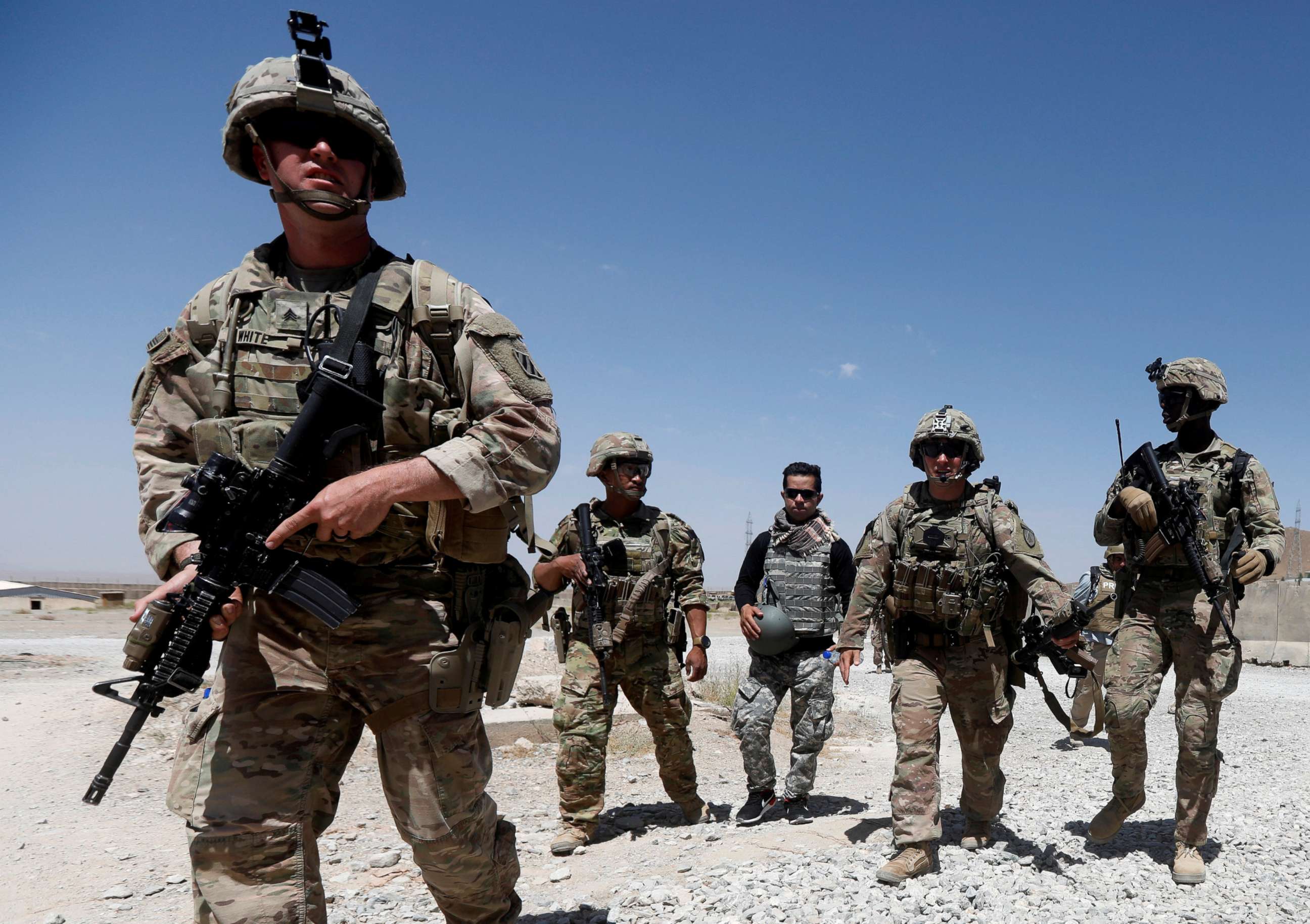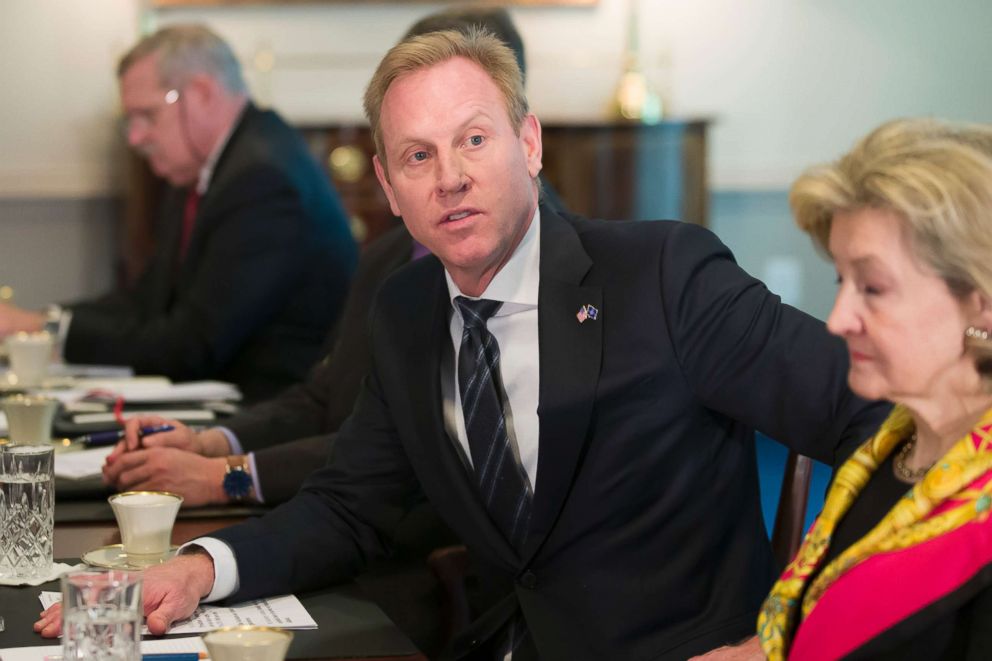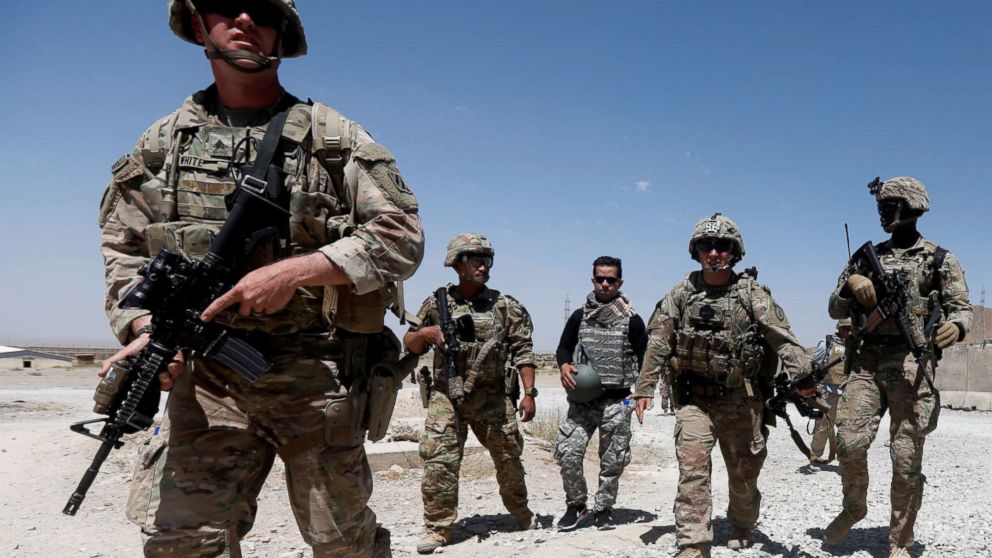Pentagon and NATO chiefs say Taliban talks have been 'encouraging'
Top U.S. and NATO defense officials are encouraged by the recently concluded U.S. talks with the Taliban that could lead to a peace settlement in Afghanistan and the possible withdrawal of American troops.
The lead U.S. negotiator in the talks told the New York Times on Monday that the talks have resulted in the "framework" of a deal where the Taliban would guarantee that Afghan territory would not be used by terrorists. In return for an American troop pullout, the U.S. wants the Taliban to agree to a ceasefire and to negotiate directly with the government of Afghanistan.
But that remains a key sticking point, according to a State Department spokesperson. The Taliban has refused to even engage the Afghan government, dismissing them as a puppet of the U.S.
Another issue is a "comprehensive ceasefire," the spokesperson told ABC News, adding that both were "integral to a negotiated political settlement. Nothing is agreed until everything is agreed."
Acting Defense Secretary Pat Shanahan described the six days of talks in Qatar as "encouraging conversations."

"I'd say really right now the takeaway is encouraging," Shanahan told reporters Monday, prior to his meeting at the Pentagon with NATO Secretary-General Jens Stoltenberg.
The NATO chief also provided an optimistic take on the talks but cautioned that discussion of troop withdrawals from Afghanistan is premature.
"I think it's a bit too early to speculate because what we have to do now is support the efforts to try to find a peaceful solution," Stoltenberg said, when asked if the talks included the withdrawal of NATO troops from Afghanistan. "We strongly support those efforts."

Shanahan told reporters that he had not been tasked by the Trump administration to begin preparations for a full withdrawal from Afghanistan. ABC News has previously reported that the Trump administration plans to withdraw as many as 7,000 of the 14,000 U.S. troops in Afghanistan. There are an additional 8,000 troops from 38 other countries participating in the train-and-advise mission to help Afghan security forces in their fight against the Taliban and the Islamic State.
The State Department spokesperson would not provide details on what had already been agreed, only saying Amb. Khalilzad had made "progress toward a lasting peace and negotiated settlement."
But Khalilzad, who traveled straight to Kabul after talks ended to brief Afghan President Ashraf Ghani, told the New York Times Monday, "We have a draft of the framework that has to be fleshed out before it becomes an agreement... The Taliban have committed, to our satisfaction, to do what is necessary that would prevent Afghanistan from ever becoming a platform for international terrorist groups or individuals."
Over the weekend, Khalilzad tweeted positive descriptions of the six days of talks in Qatar with senior Taliban representative saying there had been "significant progress on vital issues."
But the likelihood of a final deal with the Taliban remains unclear, given that the Taliban has long maintained it will not negotiate with the Afghan government, a key U.S. position.
Direct U.S. talks with the Taliban began last year, the culmination of sporadic contacts with the insurgent group in recent years.
In his tweets Khalilzad said "we will build on the momentum and resume talks shortly."
The war in Afghanistan has lasted for over 17 years.




